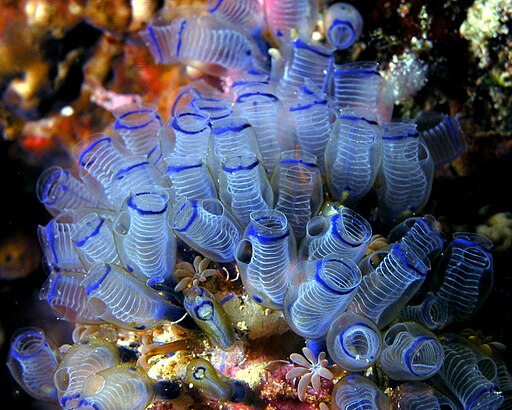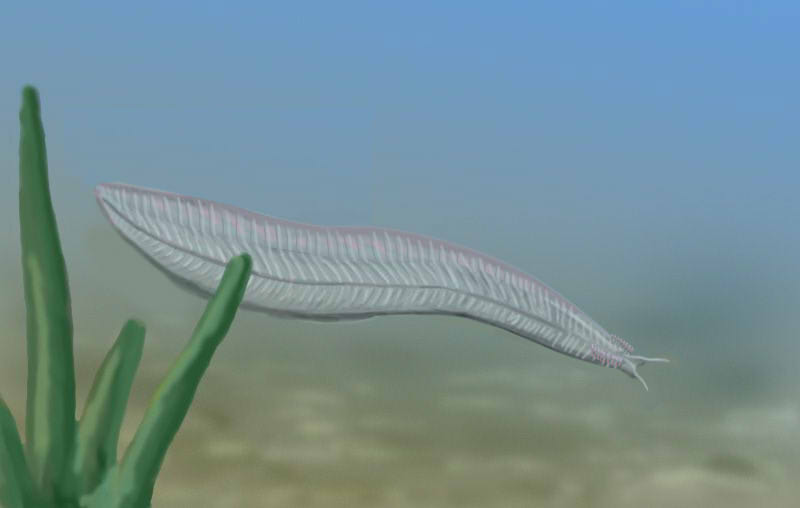Around 530 million years ago, or perhaps a bit longer, scientists find a host of multi-celled, complex organisms that almost seem to have appeared out of nowhere. Prior to this burst of diversification, most life was one-celled organisms, which were at best organized into colonies. Afterward, almost every current phyla was represented.
Creationists love this little tidbit of information, pointing to it as an act of creation, even though it does nothing at all to defend the creation story as given in Genesis 1 or Genesis 2.
I'm convinced that most creationists who refer to the Cambrian Explosion have no idea what a phylum is.
Scientists classify all of life under an outline. Here's the classifications for a grey wolf, for example:
- Kingdom: Animalia
- Phylum: Chordata
- Subphylum: Vertebrata
- Class: Mammalia
- Order: Carnivora
- Family: Canidae
- Genus: Canis
- Species: Lupus
We share the same class as the grey wolf, but we are in a different order. Our order is primates.
When a creationist mentions that every phylum, or almost every phylum was already represented at the Cambrian Explosion, they generally fail to mention that no mammals, reptiles, or amphibians are found in the Cambrian era. Our phylum, chordata, was represented by species resembling the bluebell tunica:
Or, to give an example of a chordate that actually existed during the Cambrian explosion, this is a recreation from fossil evidence of Haikouichthys.
As you can see, even if the Cambrian Explosion were a special act of creation, there's still a great deal of evolution left to happen before a human appeared on the scene! In fact, the entire lineage from fish to amphibian to reptile to mammal is all not represented at the Cambrian Explosion.
The Mystery of the Cambrian Explosion Becomes Less Mysterious
Recently, scientists performed some studies on a relatively common fossil called Pikaia gracilens and have been able to determine that it is a possible parent for the entire Chordata phylum.
The phylum "Chordata" refers to something called a "notochord," a sort of very primitive backbone. P. gracilens has a notochord along with other features that make it clearly a chordate. This article calls it the most primitive chordate and the possible ancestor of all chordates, but the article also dates P. gracilens at 505 mya, which makes it 25 million years more recent than the Cambrian explosion, not exactly a convenient time frame to be the father of the Cambrian chordates.
The idea is that because it is more primitive in structure than any known chordates, it's possible that chordates evolved from earlier versions of P. gracilens.
The abstract from the researchers is clearer. They remark:
Whilst the possibility that Pikaia is simply convergent on the chordates cannot be dismissed, we prefer to build a scenario that regards Pikaia as the most stem-ward of the chordates with links to the phylogenetically controversial yunnanozoans. This hypothesis has implications for the evolution of the myomeres, notochord and gills.
In other words, things are not certain yet. There will be more later.
Note, though, that the reference to "convergent" does not mean that they think P. gracilens may have descended from Cambrian chordates. Instead, they have to acknowledge the possibility that Pikaia evolved from a different direction and ended up being like the chordates. This happens, but it is unlikely. Thus, if P. gracilens did not converge, then its primitive features make it a prime suspect for ancestor of all chordates, and thus man's earliest known forefather.



No comments:
Post a Comment
Feel free to comment, and I'll even let links be posted, particularly on the subject of evolution from either side. No spam, and no pointless links. The comments are moderated.